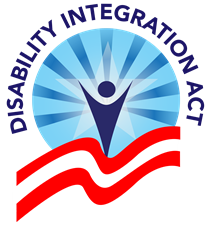First, it establishes a general rule. That reads, “No public entity or LTSS insurance provider shall deny an individual with an LTSS disability who is eligible for institutional placement, or otherwise discriminate against that individual in the provision of, community-based long-term services and supports that enable the individual to live in the community and lead an independent life.”
Then the legislation identifies specific ways that states currently limit access to home and community based services that would be illegal. These include:
- Using eligibility criteria and other policies to prevent an individual with an LTSS disability from receiving community-based long term services and supports. States currently can have “gaps” in their system so that people don’t qualify for LTSS because of the type of disability they have, their age, or the age they became disabled. This would be illegal under the Disability Integration Act;
- Enforcing policies that limit the availability of community-based long term services and supports for individuals with LTSS disabilities such as service or cost caps which prevent people with the most significant disabilities from living in the community;
- Not providing a community-based long term services and supports that an individual with an LTSS disability needs to live an independent life in the community and fully participate in society, such as not allowing people to get assistance with health related tasks or safety monitoring. That becomes illegal under the Disability Integration Act;
- Having policies that interfere with the ability of an individual with an LTSS disability to fully and meaningfully participate in community life, including requirements that they receive services and supports, such as day or employment services, in a congregate or disability-specific setting;
- Having policies that delay or restrict access to services, like waiting lists;
- Failing to establish adequate rates to attract quality attendants;
- Failing to provide services and supports on an intermittent, short-term or emergent basis that are needed for community integration, like crisis support or respite services;
- Imposing policies, such as a requirement that individuals use informal supports, that limit the ability of individuals with LTSS disabilities to live independently in the community and fully participate in community life;
- Failing to provide individuals with LTSS disabilities community-based long term services and supports as an alternative to institutionalization;
- Failing to assure that all institutionalized individuals are regularly notified of and, if they want, provided community-based long term services and supports; and
- Failing to make reasonable modifications when they are necessary to allow individual with LTSS disabilities to receive community-based long term services and supports.
Finally, not providing sufficient affordable, accessible and integrated housing to allow individual with LTSS disabilities to choose to live in non-congregate, independent housing in the community is also defined as a form of discrimination because you can’t live in the community if you don’t have a place to live.
It’s important to note that – as ADAPT has said for years – we need affordable, accessible, and integrated housing, but this legislation clarifies that people should have the opportunity to live in housing that is independent of service provision because service providers – who also are the landlord – can use their authority as the landlord to undercut the autonomy of the people with disabilities they are intended to be serving.

Comments are closed.